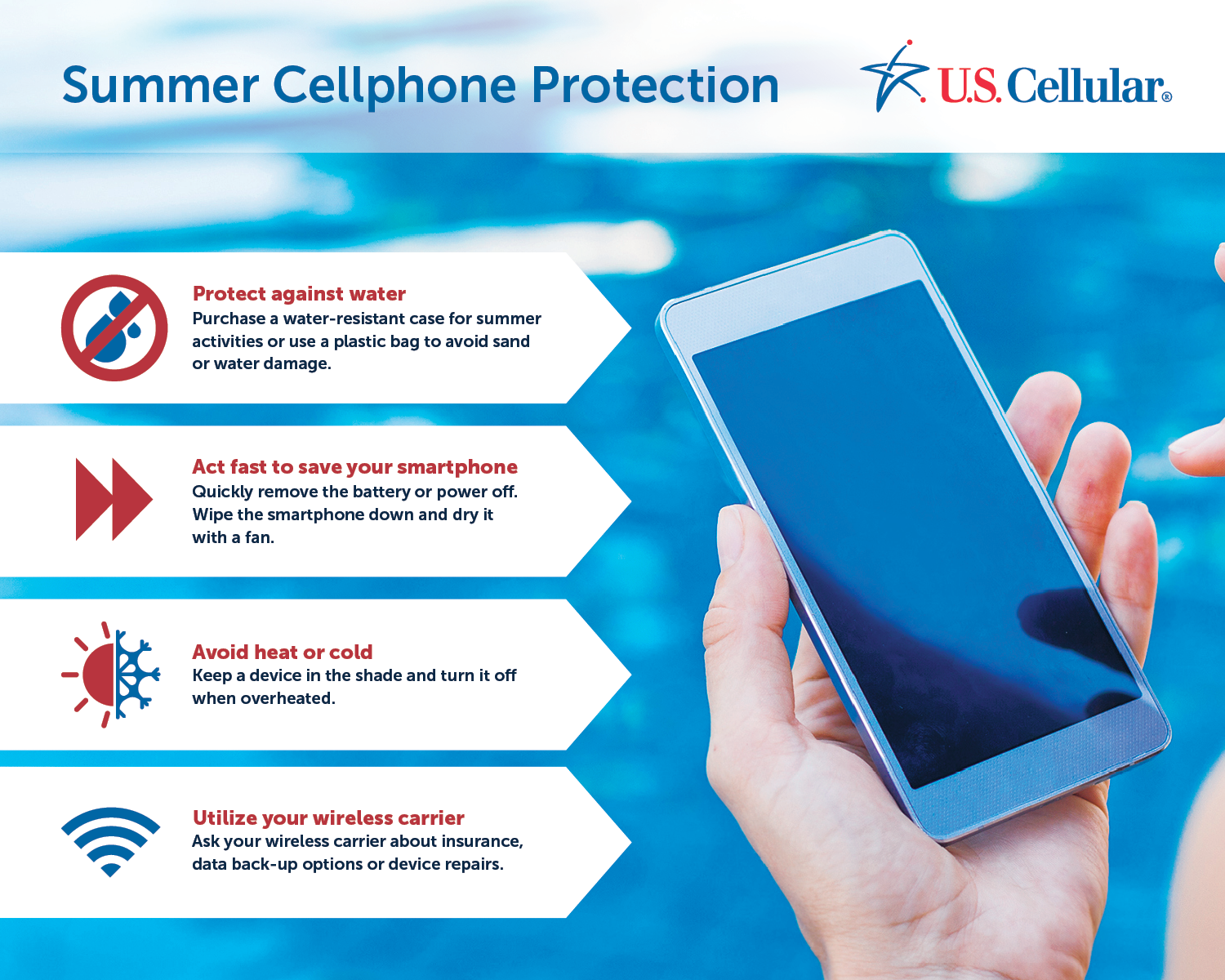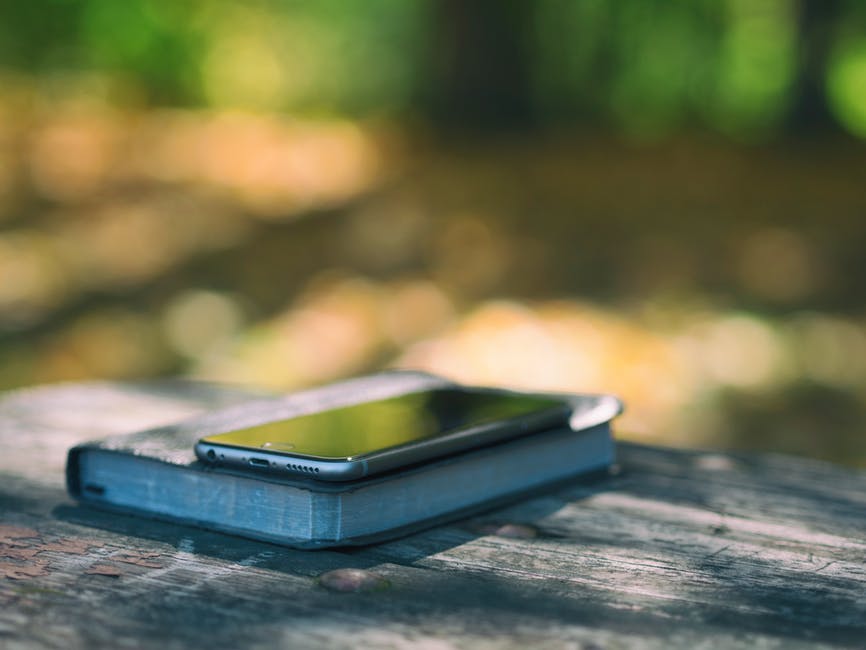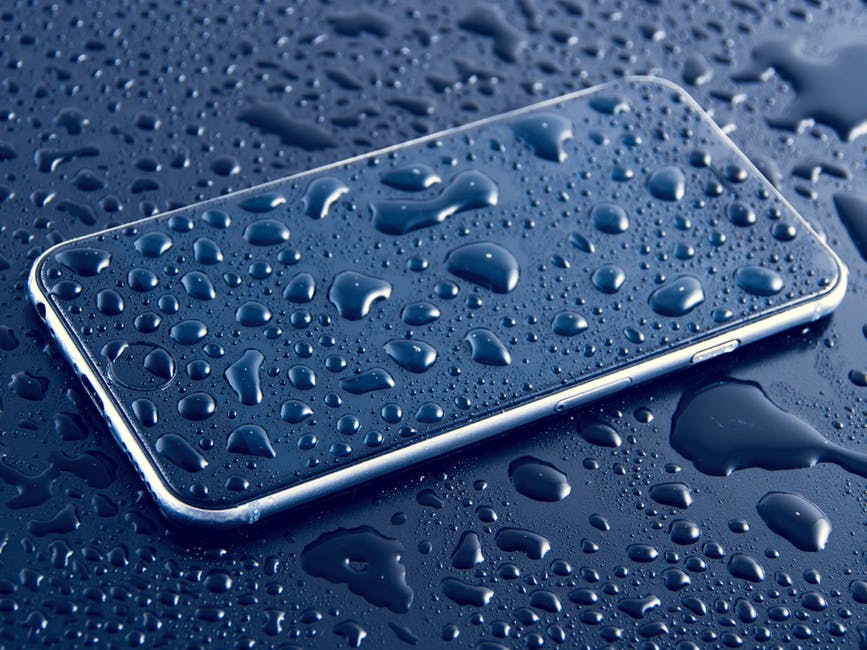![]()
Heat and Water Protection Tips

Did you know that smartphone obsession is at an all-time high? I’ve dropped my phone in water and it stinks. U.S. Cellular has recovery measures and tips to keep phones safe during the summer months.
It’s always a good idea to consider insuring your device, especially if you are prone to accidents. Not only have I dropped my phone in water, but I’ve also dropped it on the sidewalk, the asphalt, and any other hard surface. That’s why I totally shattered my screen. Insurance as been huge for me. Many wireless carriers offer device protection that includes device replacement, tools to back up data and malware protection. As they say, it’s better to be safe than sorry, and U.S. Cellular can help.

Ways in which summer activities could harm our devices:
- Many manufacturers recommend keeping a phone between 32 and 95 degrees Fahrenheit to avoid temperature damage. If a device overheats, the internal components may become damaged which can cause data loss, dead batteries, and in some extreme cases, the lithium battery may leak, bubble up, expand or explode and ruin the device completely.
- Water damage can happen frequently during the summer months. Liquid gets inside of the phone’s casing and corrodes the internal electrical components, causing the phone to short circuit and stop the phone from working.

Tips for those who are traveling this summer and want to keep their phones safe:
- Smartphone users should consider purchasing a separate water-resistant case for summer activities around water. Cases such as an OtterBox, DryCase or LifeProof are great options to consider for your iPhone 7 or Samsung Galaxy S8 that will still allow normal use of the phone. A less expensive home remedy is to utilize a plastic bag, which will keep a smartphone sealed and safe to avoid damage, including sand or dirt.
- If disaster strikes and a smartphone does fall into water. Turn off the phone immediately and remove the battery, if possible. After, place the phone near a fan, not heat, to dry and use rice or desiccant packets to help absorb moisture.
- Users should keep smartphones out of direct sunlight or in a car unattended where temperatures can reach over 150 degrees. If a device overheats, the internal components may become damaged which can cause data loss or dead batteries.
- Always utilize your wireless carrier if disaster arises. For peace of mind, ask about insurance or data back-up options when purchasing the device. Later, if you suspect the phone is not working due to water or heat damage, take the phone to the wireless carrier, who can sometimes fix it when home remedies haven’t worked.
Do you have any tips to add?


Leave a Reply